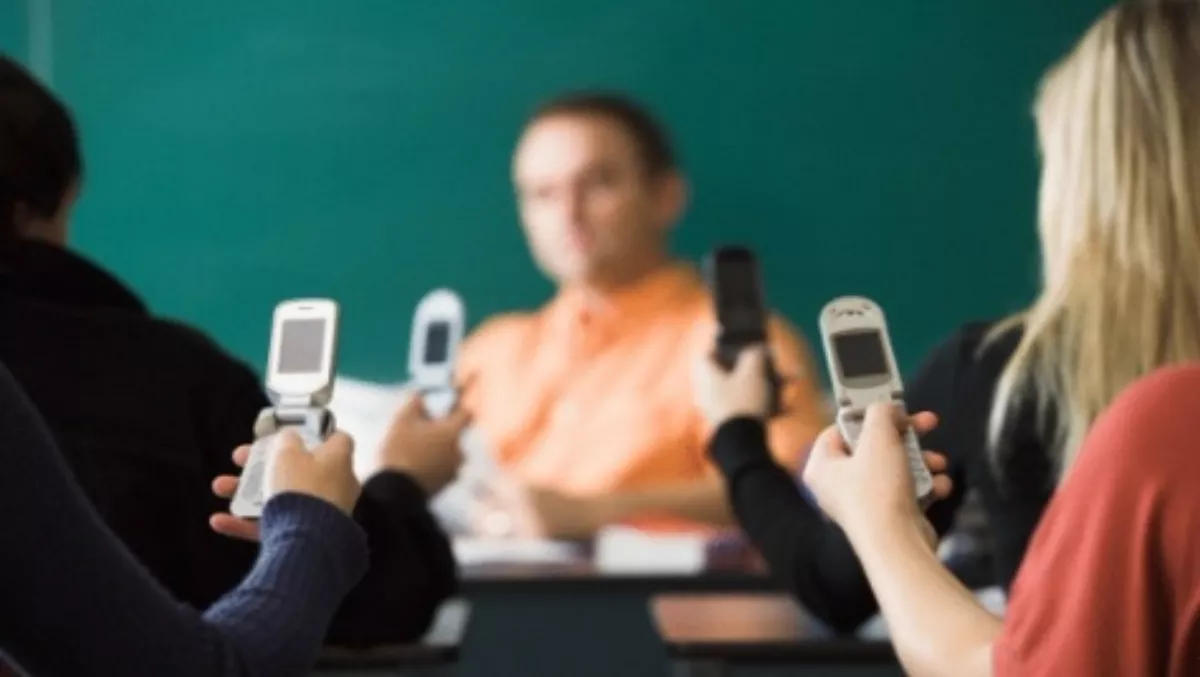
As mobile devices become a permanent fixture in classrooms, educators are having to compete with a host of electronic stimuli for their students' attention.
The extent messaging via mobile devices interferes with students' learning has been examined in a recent study, National Communication Association's journal, Communication Education, which evaluates how different types of messaging can impact student retention of classroom material.
As mobile technology becomes more widespread, educators have begun to include digital technology in their classrooms and lesson plans. As mobility becomes more prolific, and the more the technology is used as part of lessons, researchers are discovering texting and messaging may not be as distracting to students.
Previous research has shown that students who text in class generally recall less about the classroom content than those who do not.
Similarly, those who used mobile devices in class took notes of poorer quality, detracting from another cognitive process by which students integrate new material.
A new study by J.H. Kuzennekoff, Mobile Phones in the Classroom: Examining the Effects of Texting, Twitter, and Message Content on Student Learning, tested students using mobile devices in class to respond to messages that were relevant to classroom material.
Additionally, the researchers for the study varied the form of the messages (responding to another message or composing an original one) and the frequency of the texts.
Students who replied to messages relevant to class material scored higher on multiple-choice tests than students who replied to messages that were unrelated to the class.
“Sending or receiving relevant messages may allow students to engage in similar processes as those that occur during note-taking,” the study authors conclude.
“Specifically, relevant messages may allow students to encode lecture content in a manner similar to the processes that occur during note-taking.”
The researchers found the frequency of messaging was also found to be a factor in the interruption of learning. Students who tweeted with higher frequency on content not related to the class took lower quality notes than those who tweeted less frequently on non-classroom related subjects, and scored up to 17% lower than the control group on multiple-choice tests.
“While many instructors assume that mobile devices interrupt learning processes in the classroom, even when they are related to material being studied, this research points to the value that such devices may impart,” the research notes.
“That said, the study suggests that texting about content external to the lesson, or texting at a very high frequency, can, indeed, interrupt learning.
“In addition to helping guide campus and classroom mobile device policies, this research contributes to the growing body of research on how the brain processes information when confronted with multiple, simultaneous sources of input.
